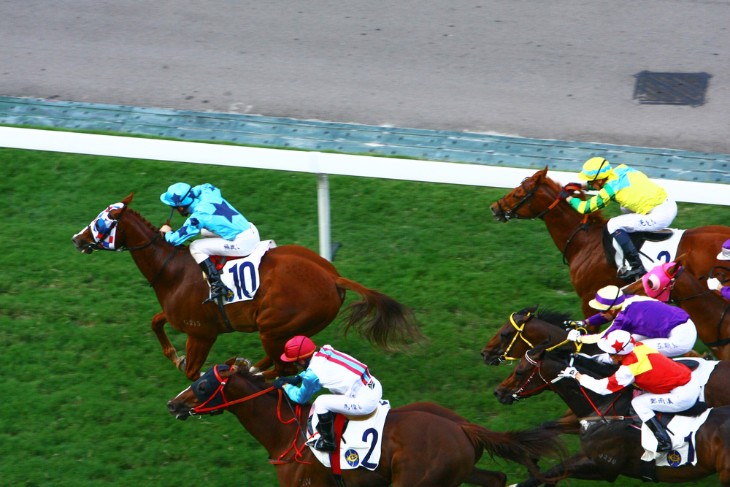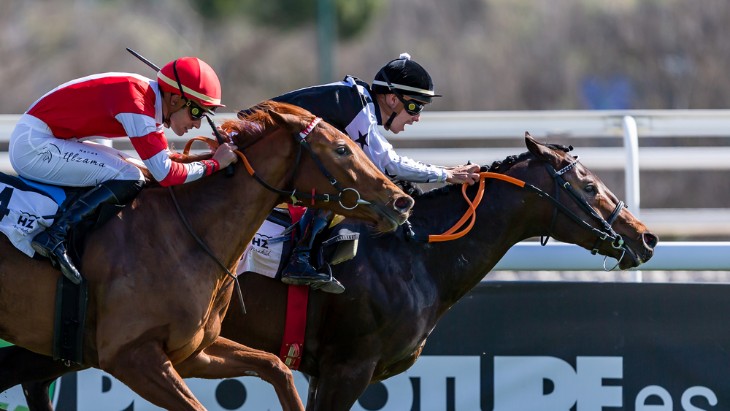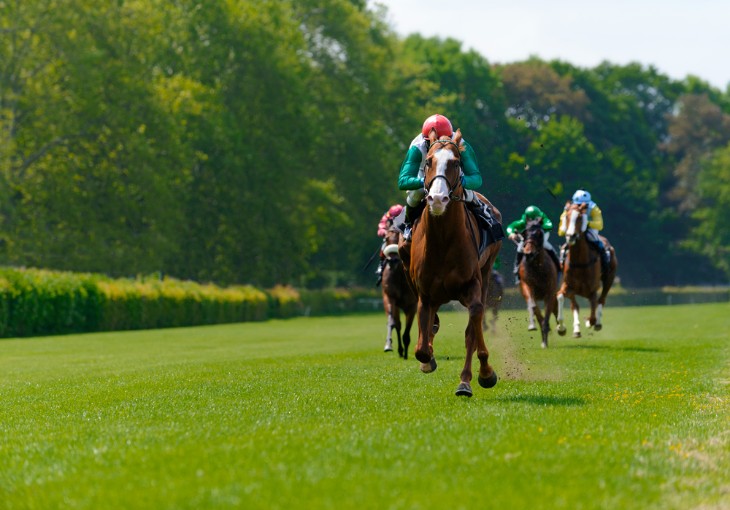In horse racing, "favourite" refers to the horse expected to win. The expectation is based on several factors, such as past performance, the quality of the jockey and trainer, and the horse's physical fitness. Bookmakers set the odds with the horse with shorter odds than others, referred to as the favourite. But how reliable is this status? Consideration will be given to data and factors that shape the success of favourites in horse racing.
Introduction to Favourites in Horse Racing
The favourite in a horse race is usually considered the one who should win it. This depends on previous race cases, the jockey's skill, the trainer who accompanied them, and the condition of a particular horse. Bookmakers set odds, and they usually choose horses with the lowest odds. However, can they always be believed? Let us look at some figures and aspects determining favourites' success in racing.
Historical Win Rates of Favourites
Around 30-35%, favourites have historically won between one-third and two-fifths of all races without any significant change over time, suggesting that they get licked more often than they come out winners, unlike other horses: Generally, 32% - flat races only – UK-based platforms (such as Doncaster or Newbury) show this figure. This observation holds across different types of races and areas.
Favourites win more frequently in flat races than jump races because hurdles and long distances make it impossible for them to win consistently. Favourites find it harder to win regularly at these kinds of events mainly due to some unpredictable variables, like obstacles stretching their paths for long distances typical for jump races, unlike flat ones where there are slight changes within a limited distance.
Again, track conditions matter too much here. Favourites perform differently on dry, flat tracks from wet, muddy ones, so bettors must always know about prevailing weather before betting. For example, one horse might be successful on a particular type of track but perform poorly in races conducted in another kind.
Another factor is the level of competition. In evenly matched races, the favourite has a lower chance of coming out as a winner. However, when there are clear underdogs, favourites tend to do better.
Again, trainer and jockey experience can also affect outcomes. Expert trainers and riders have proven records that could help improve the favourites' chances.
While favourites have a higher win rate than other horses, they still lose more often than they win. To make an informed decision, bettors should consider various factors, including race type, track conditions, competition level, and the trainer and jockey's skills.

Factors Influencing The Favorite's Success
Several factors determine whether or not a favourite will win a race. Understanding these factors can assist bettors in making more astute choices.
- Race Type: Favourites find it easier to win flat races compared to jump races because flat ones have fewer hurdles and, hence, offer greater predictability. Jump races usually involve long distances with obstacles along them, however, making it harder for them to do so.
- Track Conditions: Track conditions are pertinent to how horses perform at racing tracks; this means different horses thrive under variable conditions like dry, hard surfaces, wet ones, or muddy ones. It's always crucial for gamblers to check the weather before placing their wagers. There may be tracks where one horse does pretty well but performs below expectations in others.
- Level of competition: It is common knowledge that the level of competition affects the favourite's chances. For example, if horses in the race have closely matched abilities, it may not be worth betting on the favourite. Conversely, playing against weaker horses will increase its chances of winning. To understand whether the favourite has any chance or not, one needs to assess its competitors.
- Trainer and Jockey: The trainer and jockey play an essential role. These trainers have a long history of success as they have made a name for themselves in this field. Indeed, they can tip odds towards the favourite horse's win. Learning about the recent performance of both trainer and jockey is critical when predicting who might emerge as winners among favourites.
By understanding these factors, bettors can make wiser choices. This analysis can even improve the situation, though favourites usually have a high probability of producing good game results.
Betting on Favourites
Most people think that betting on favourites is very safe since it increases their chances of winning a bet. However, favourites only win between 30-35% of all races, meaning they lose more often than they win. This means betting on favourites is only sometimes a winning position but should be considered like other bets.
When you place bets on favourites, you usually get lower odds, which means returns after bets will also reduce significantly compared to backing outsiders or non-favourites. The rewards are less, but it's risk-free. It's essential to balance the benefits with the risks involved before making up one's mind.
Consider the odds and what previous races indicate about prospective winners before placing your wager. Different horses are occasionally fancied because they were tipped for great things based on reputation rather than solid performances. Considering such figures alongside those available from actual tracks can assist in making informed decisions.
Assessing the quality of rivals and other participants who will make one look superior at the finish line is also vital. The line above shows that if the favourite has to win, it must be against some weak competitors. However, lower competition boosts the chances of winning the favourites. Race'sThe race’s competitiveness helps define other things about being a favourite.
Track conditions could also influence Favourite's performance. Analysing the horse's records can tell whether or not such a performance is likely to be repeated. A dry-land specialist may perform poorly on muddy tracks.
Another critical factor is researching who will ride and train it. Therefore, qualified jockeys and trainers can tremendously boost any horse's chances of winning. Evidence from their recent activities reveals something about favoured participants.
Betting on favourites may sometimes be less dangerous but not necessarily wise. To avoid these common pitfalls, bettors need to consider odds, competitions, track type/conditions, and jockey/trainer experience.
Strategies for Betting on Favourites
Having a strategy when betting on favourites increases your chances of winning. Some key strategies include:
- Consider the Odds: Always evaluate the odds compared to previous performances by favourites. Sometimes, punters rate them highly just because they have earned some reputation without doing anything worthwhile. It is, therefore, essential to establish if those odds accurately reflect the likelihood of a given horse winning so that they do not make overpriced bets and concentrate on better opportunities.
- Assess the Competition: Look at all the other horses in this race. If there are many strong runners, too, perhaps this should also discourage you from backing up for such choices. Studying rivals' strengths and weaknesses helps to understand the reality of the favourite’s probabilities.
- Check Track Conditions: The track's condition can significantly affect a horse's performance. Verify that the favourite has performed well under these track conditions. A good horse on dry tracks may need to improve on wet or muddy ones. Always take into account the track conditions in your bets.
- Evaluate the Jockey and Trainer: Look at recent records for both jockey and trainer. Success comes from the qualification of riders and trainers who are experienced enough. What have they done before? What are they doing now to impact their prospects against the favourite?
- Look for Value Bets: Sometimes, there might be better value in backing horses at the second or third favourite rather than punting on the main favourite. With low odds for the favourite, alternatively, try to select horses with a slightly higher price but who are fancied to win. This will give you more chances.
- Use Multiple Bets: Instead of placing all your money on one favouritism, consider spreading your bets across different races or horses. This reduces risk while increasing profit possibilities. A way forward could involve small bets placed on some researched favourites.
- Monitor Market Movements: Watch out for any changes in market trends leading up to race day. Changes in odds may represent information that only insiders know about or new developments during this period. This bet judgemental extra can go a long way in betting decisions, especially considering changing odds.
Following these strategies would help you achieve better-informed betting and increase your odds of success. Betting on favourites is difficult since many factors must be considered thoroughly, but by taking the right approach, additional strategic moves can be made, and through them, more money can be made.

Common Misconceptions about Favourites
A lot of punters need help understanding favourites in horse racing. These misconceptions will enable you to make better decisions when betting.
Another common misconception is that the favourites win most of the time. While this is incorrect, on average, a favourite wins 30-35% of races, implying it loses more than it wins. Gamblers should know that choosing favourites as their bets does not guarantee a money-making opportunity.
Additionally, there is a wrong belief that betting on favourites always means low returns. While favourites are often priced at short odds, profitability from such bets remains possible. You can still make money by studying the odds and comparing them with the horse's winning chances. Occasionally, underdogs are underrated, and if you gamble for those horses, you get to make some money, too.
Some people think that favourites are always the best horses in the race, but sometimes why a particular horse is made favourite over other horses could be influenced by factors like hype or public opinion rather than its performance. Research and find out why a horse is a favourite before placing your bet.
It is also wrongly believed that favourites are consistent performers. While favourites frequently have good track records, they also have off days sometimes, just like any other competitor. This can be attributed to factors such as track conditions or competition and even the health status of the horse during race day, among others.
Many bettors also believe that once a horse is the favourite, it will always be the favourite. Nonetheless, this statement only holds for recent performances because its status as a favourite can change due to injuries sustained or changes in competing faculties at any given time. Make sure you check updates before making any bets.
Finally, some think that betting on favourites is the only way to win. Though higher probabilities do favour them, staking on them alone may restrict your chances of winning big. Other methods for wagering can diversify your bets and increase your chances of profiting.
By understanding these misconceptions better, one can be more informed and realistic while betting on favourites. This knowledge can enhance one's betting strategy and improve one's outcomes.
Real-Life Examples & Case Studies
Real-life examples and case studies provide insight into the frequency of favourites' wins and what affects their success. Let's examine some notable cases.
For instance, in Cheltenham 2020, the favourites won about 35% of the races. That is in line with the historical average between 30-35%. There were, however, other significant upsets in which long-shots wore smiles. For example, Epatante won the Champion Hurdle as favourite. Nonetheless, Shishkin was not victorious in other contests like the Supreme Novices Hurdle despite his status as a favourite, which demonstrates why horse racing is called "the sport of kings"—its results are always unpredictable.
Another instance that exemplifies such a point is the 2019 Grand National, one of the world's most famous horse races. The favourite Tiger Roll went on to win the race, thus becoming the first horse since Red Rum to win back-to-back Grand Nationals. This also demonstrated how important it was to consider previous performances in similar high-stakes races for every horse. However, The Grand National has been known for its uncertainty because several favourites still need to finish it in other years.
The Epsom Derby 2021 in flat racing is a perfect example of how favourites may win or lose. Despite not being the favourite, Adayar emerge victorious with higher odds. Through this upset, it can be concluded that even favourites are always unsure of winning any critical race. Moreover, gamblers who did proper homework and focused on variables other than their favourite could make vast amounts of money.
These real-life examples demonstrate that although favourites have higher chances of winning statistically speaking, horse racing is still an uninformed gambling game. These instances should help bettors understand why they need to do comprehensive research and consider all relevant aspects when betting. By drawing lessons from previous competitions, punters can revise their strategies and increase their chances of victory.
In Summary
Favourites win about three in every ten races or approximately 30-35%. This makes them better statistical bets but not guaranteed winners compared to other horses. Elements such as the kind of race, track state, competition level and jockey's skills affect whether a particular horse will become a favourite or not. To place informed wagers based on these factors, bettors must incorporate techniques into their betting systems. Even though favourites may be considered less risky bets, it is essential to realise that horse racing is inherently uncertain and always involves an element called luck!
For more information:








